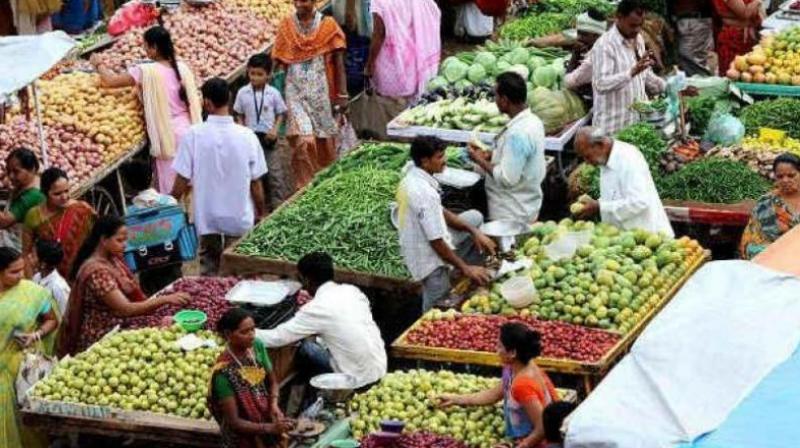RBI expects retail inflation to range 4.3-4.7 per cent in H2 FY'18
Policy review observed that moderation in inflation, excluding food and fuel, that was witnessed in Q1 of 2017-18.

Mumbai: The RBI said on Wednesday that it expects retail inflation to be in the 4.3-4.7 per cent range during the second half of the current fiscal, marginally higher than projected earlier, on account of global crude oil prices and implementation of the 7th Pay Commission recommendations.
It said the headline inflation outcomes have evolved broadly in line with projections.
"Going forward, the inflation path will be influenced by several factors," it said in the Fifth Bi-Monthly Monetary Policy Review unveiled on Wednesday, keeping the key policy or the repo rate unchanged at 6 per cent.
In the previous monetary policy review held in October, RBI had projected inflation to be in range of 4.2-4.6 per cent for October-March (second half) period of this fiscal.
"On the whole, inflation is estimated in the range 4.3- 4.7 per cent in third quarter and fourth quarter of this year, including the HRA effect of up to 35 basis points (0.35 per cent), with risks evenly balanced," the Reserve Bank said.
RBI has aimed to achieve a medium-term target of 4 per cent for retail inflation (based on consumer price index) with band of plus/minus 2 per cent while supporting growth.
The policy review observed that the moderation in inflation, excluding food and fuel, that was witnessed in first quarter of 2017-18 has "by and large, reversed".
"There is a risk that this upward trajectory may continue in the near-term," it said.
It also expected the impact of the house rent allowance (HRA) to the central government employees to peak during December, following the 7th Pay Commission award.
"The staggered impact of HRA increases by various state governments may push up housing inflation further in 2018, with attendant second order effects... The recent rise in international crude oil prices may sustain, especially on account of the OPECs decision to maintain production cuts through next year,"
RBI said. In this scenario, it stressed, any adverse shock due to geo-political developments could push up prices even further. However, there may be some respite due to a pick in arrival of winter season vegetables.
Price of pulses continue to show a downward bias, RBI said, and going forward retail prices may come down post Goods and Services (GST) Council decision to bring down taxes on several goods and services.
The six-member Monetary Policy Committee noted that the evolving trajectory needs to be carefully monitored and any increase in food and fuel prices may further harden inflationary expectations.

